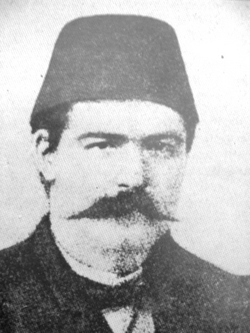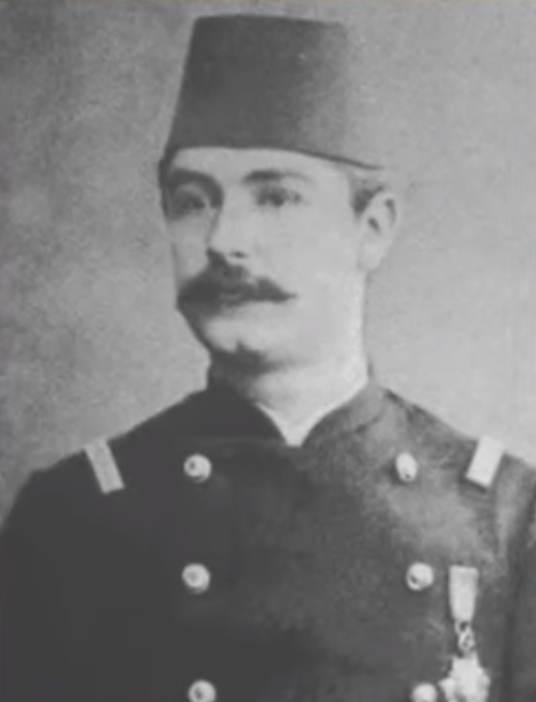Besir Fuad, preparing fifteen compilations and translations in his short literary life, took his place among the outstanding individuals of the period he lived in thanks to the languages he knew (English, French, German) and to his deep cultural knowledge. Besir Fuad is regarded as the "First Turkish Positivist and Naturalist" due to his monographs, especially his monograph of Victor Hugo, which criticizes romanticism and introduces naturalism to Turkish Literature for the first time. However, his debates on literature with Ahmet Mithat and his intense intellectual debates with Namik Kemal and especially with Menemenlizade Tahir were not published.
Besir Fuad supported the idea that "Poetry should not be devoted to exaggeration, delusions and dreams, on the contrary, poetry should serve to improve the morality of society and enlighten the minds of people."
WORKS:
ESSAY-RESEARCH: Victor Hugo (Victor Hugo, monograph, 1885), Volter (Voltaire, monograph putting forward the idea that Voltaire was not an atheist, he was only against Christianity, 1886), Beser (The Human Being, booklet about the physiology of human, 1886), Intikad (Literary Criticism, his correspondence with Muallim Naci through letters due to the monograph Victor Hugo, 1887), Mektubat (Letters, his intellectual debates with Fazli Necip due to the monograph Victor Hugo, 1888).
LINGUISTIC: Bedreka-i Lisan-i Fransevi (Guide Book of the French Language, 1884), Miftah-i Bedreka-i Lisan-i Fransevi (Key to the Guide Book of the French Language, 1885), Almanca Muallimi (German Teacher, 1886), Ingilizce Muallimi (English Teacher, 1886), Miftah-i Usul-i Talim (The Key to Education Methods, 1886), Siir ve Hakikat (Poetry and Reality, his complete works prepared by Handan Inci, 1999).He also did translations.
Besir Fuad, preparing fifteen compilations and translations in his short literary life, took his place among the outstanding individuals of the period he lived in thanks to the languages he knew (English, French, German) and to his deep cultural knowledge. Besir Fuad is regarded as the "First Turkish Positivist and Naturalist" due to his monographs, especially his monograph of Victor Hugo, which criticizes romanticism and introduces naturalism to Turkish Literature for the first time. However, his debates on literature with Ahmet Mithat and his intense intellectual debates with Namik Kemal and especially with Menemenlizade Tahir were not published.
Besir Fuad supported the idea that "Poetry should not be devoted to exaggeration, delusions and dreams, on the contrary, poetry should serve to improve the morality of society and enlighten the minds of people."
WORKS:
ESSAY-RESEARCH: Victor Hugo (Victor Hugo, monograph, 1885), Volter (Voltaire, monograph putting forward the idea that Voltaire was not an atheist, he was only against Christianity, 1886), Beser (The Human Being, booklet about the physiology of human, 1886), Intikad (Literary Criticism, his correspondence with Muallim Naci through letters due to the monograph Victor Hugo, 1887), Mektubat (Letters, his intellectual debates with Fazli Necip due to the monograph Victor Hugo, 1888).
LINGUISTIC: Bedreka-i Lisan-i Fransevi (Guide Book of the French Language, 1884), Miftah-i Bedreka-i Lisan-i Fransevi (Key to the Guide Book of the French Language, 1885), Almanca Muallimi (German Teacher, 1886), Ingilizce Muallimi (English Teacher, 1886), Miftah-i Usul-i Talim (The Key to Education Methods, 1886), Siir ve Hakikat (Poetry and Reality, his complete works prepared by Handan Inci, 1999).He also did translations.
Advertisement
Explore more
Sponsored by Ancestry
Advertisement




